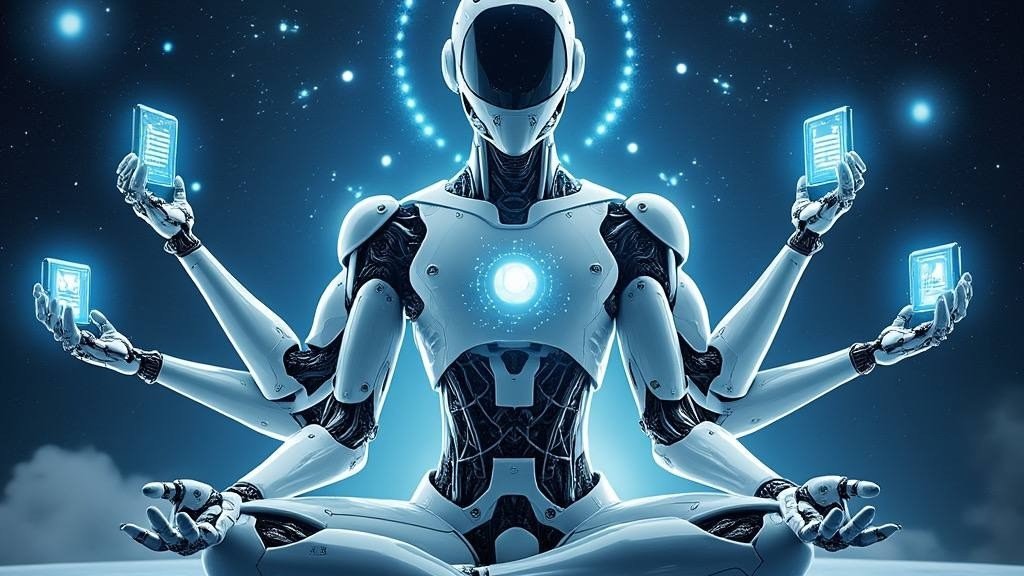Artificial Intelligence (AI) is no longer confined to research labs or tech companies. In 2025, it has become a mainstream technology shaping how we live, work, shop, learn, and communicate. AI is now embedded in our smartphones, cars, workplaces, and even our kitchens. It influences decision-making, automates repetitive tasks, and provides personalized solutions in ways that were unimaginable a decade ago. This blog explores how AI is impacting key areas of everyday life, supported by examples, applications, and future possibilities.
1. AI in Healthcare – The Future of Personalized Medicine
Healthcare has seen one of the most revolutionary shifts due to AI integration. From diagnosis to treatment, AI is making healthcare faster, more precise, and predictive.
-
Predictive Analytics: AI algorithms can detect diseases like cancer, heart conditions, and diabetes much earlier than traditional methods by analyzing medical records, genetic data, and lifestyle factors.
-
Virtual Health Assistants: Available 24/7 through apps, these AI-driven assistants help with symptom checks, scheduling doctor appointments, and providing medication reminders.
-
Surgical Robotics: AI-assisted robots are now capable of performing minimally invasive surgeries with higher accuracy and reduced recovery times.
-
Remote Patient Monitoring: Wearable devices collect real-time health data, enabling doctors to monitor patients without hospital visits.
Impact: Reduced hospital overcrowding, early diagnosis for better treatment outcomes, and improved healthcare access in rural areas.
2. AI in Transportation – Making Mobility Smarter
Transportation has become smarter, safer, and more efficient thanks to AI.
-
Self-Driving Cars: Autonomous vehicles use AI to interpret traffic signals, detect pedestrians, and adapt to changing road conditions, significantly reducing accidents caused by human error.
-
AI-Driven Traffic Management: Smart city projects now use AI to optimize traffic flow, reduce congestion, and cut travel times.
-
Intelligent Navigation Systems: AI-powered GPS apps learn from driver behavior and real-time traffic to suggest the fastest routes.
-
Predictive Vehicle Maintenance: AI systems detect potential vehicle issues before breakdowns occur, saving money and avoiding delays.
Impact: Lower accident rates, reduced pollution, and improved urban mobility.
3. AI in Education – Redefining Learning
Education is evolving from a one-size-fits-all system to a personalized learning experience.
-
Adaptive Learning Platforms: These adjust course material based on a student’s pace, understanding, and performance.
-
Automated Assessment Tools: AI grades tests and assignments quickly, giving teachers more time for interactive learning.
-
Language AI: Real-time translation tools allow students from different countries to learn together without language barriers.
-
Virtual Classrooms with AI Tutors: Students can access AI tutors anytime, anywhere, to clarify concepts or get extra practice.
Impact: Higher student engagement, improved learning outcomes, and better accessibility for remote learners.
4. AI in Retail & E-Commerce – Personalizing the Shopping Experience
Shopping experiences are now highly customized thanks to AI.
-
Recommendation Engines: AI analyzes browsing and purchase history to suggest relevant products.
-
Customer Service Chatbots: Available round the clock, these bots handle queries instantly and guide customers through purchases.
-
Visual Search Tools: Customers can upload an image to find similar products online.
-
Inventory & Supply Chain Optimization: AI predicts demand trends to ensure stock availability while reducing waste.
Impact: Faster shopping, more personalized offers, and efficient business operations.
5. AI in Home Automation – The Smart Living Revolution
Homes are turning into intelligent living spaces with AI at the core.
-
Voice-Activated Assistants: Devices like Alexa and Google Assistant control lighting, temperature, appliances, and even home security.
-
Smart Security Systems: AI-powered cameras recognize faces, detect suspicious activity, and send alerts in real time.
-
Energy Management: AI learns household usage patterns to optimize energy consumption, reducing electricity bills.
-
Appliance Automation: From refrigerators that suggest recipes to washing machines that adjust cycles based on load, AI simplifies daily chores.
Impact: More convenience, better security, and sustainable energy use.
The Road Ahead – What to Expect
The next wave of AI integration will bring even more personalized, efficient, and predictive technology into our lives. We can expect:
-
AI-powered personal health coaches for daily wellness guidance.
-
Fully automated smart cities with AI managing utilities, transport, and waste.
-
Seamless human-AI collaboration in workplaces for improved productivity.
-
AI ethics and regulations ensuring safe, unbiased, and transparent AI usage.
Conclusion
AI in 2025 is not just about automation—it’s about augmentation, where technology enhances human capabilities. It helps us make better decisions, reduces time spent on repetitive tasks, and delivers highly personalized experiences. As AI becomes more advanced, its impact on our daily lives will only deepen, shaping a future where technology and human needs are in perfect harmony.

